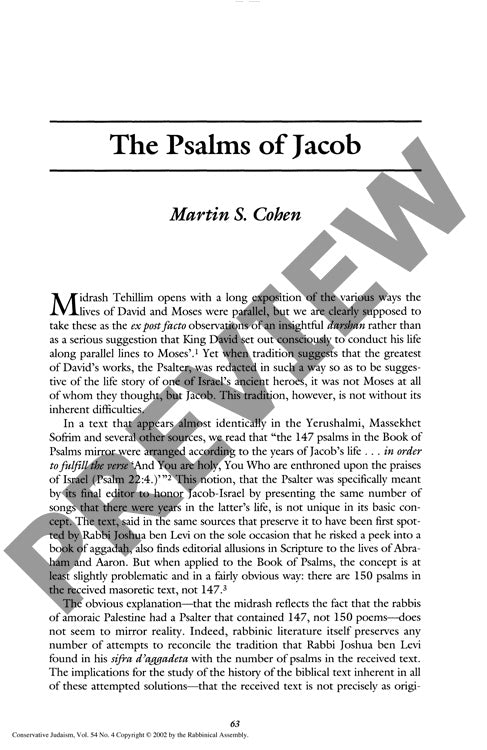The Psalms of Jacob
Couldn't load pickup availability
An ancient rabbinic tradition claims the Book of Psalms originally contained 147 compositions—mirroring the years of Jacob's life—yet today's Masoretic text presents 150 psalms. This numerical discrepancy opens a window into potential early editorial processes in biblical text formation. Through Jacob Bazak's numeric structural analysis, several psalm pairs emerge as likely original unified compositions, most notably Psalms 1 and 2, which share an eighteen-verse structure, parallel curse formulations, and a precisely positioned divine name within a 134-word framework. Similar unifying patterns appear in Psalms 9-10, 42-43, and other apparent duplicates, suggesting deliberate editorial modifications during textual transmission. The biographical parallel between Jacob and the Psalter proves particularly compelling, as both narratives center on the quest for divine communion while facing violent opposition, especially fraternal betrayal. Beyond resolving the numerical puzzle, these findings demonstrate that rabbinic traditions about biblical text development warrant serious academic consideration, while numerical analysis reveals previously unrecognized architectural features in ancient Hebrew poetry.

More Information
-
Physical Description
-
Publication Information
Published 2002
ISBN
-
Publication Credits
Martin Cohen

